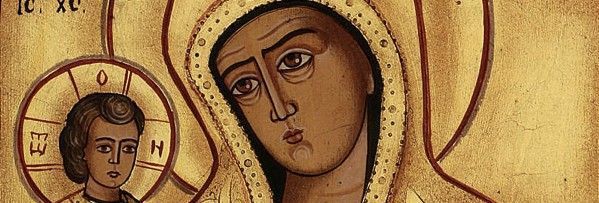And the Feet of Jesus, kissed by the unexpected and censured guest
(Lk 7:36-50)
It is Love that path of perfection desired by God to make us grow, and to our benefit - not the sterilised formalism and coercive power set up in Simon's House (in the Church, by Peter and other strict censors).
What unites seriously in conviction comes from within, from our Core; it does not depend on the outside.
Love does not programme itself at a desk or on the basis of sacred models, nor does it endure cerebral and moralistic binaries. It expresses the heart with sincerity.
It is not a reality that is subject to social distances, class - or circle more or less disciplined by the profession (dependent on the 'behind the scenes') that resists the obligation to unite with the different, deemed inadequate impure meddlers.
So empathy and loving-kindness do not appear or disappear on command, by design and according to code, discipline, season.
They belong to the deep side of being women and men of all times.
It is not façade respectability, nor ritual landscape, that can lead one's existence in the Spirit in a worthy manner, but passion.
Here is the link between tears and forgiveness.
Hetero-directed formalisms - with their unfestive formulas that do not belong to us - annihilate our essence and our most powerful emotions.
The social pact demanded by the gerontocracy is a reference always outside of us: and it will be the usual good of tradition, of opinion, of surroundings, of calculation in situation, of manners and of 'spin'; in any case, of others.
Are we really empty losers, or destined only to have to support the veterans, with no room for critical witness and active language?
And underneath imitating 'fathers', models, codes already designed (even down to the tiniest detail) for the use of the traditional sentiments of increasingly aged assemblies?
Love with all our hearts is triggered when we need to make the decisive encounter: that opportunity we feel will open the door to resources, capacities, talents, energies, otherwise unexpressed or stifled.
By letting her hair down in public, the 'sinner' almost seems to be a figure of the lesser 'boat', which offers itself and offers no resistance but only support to the protagonist (Lk 5.2.7.11).
It is a spurious and second community, compared to the official church of the apostles who are always 'close' - and of mixed cultural extraction, unlike the first community that was still Judaizing.
It proposes itself to the You-for-you with a gesture of independence: it needs a more spontaneous and personal relationship with the Lord, the only one who looks at it in a non-superficial way.
A relationship prevented precisely by those who crowd around Him, but to gag Him, and to lie down.
The regulars - all predictable - do not appreciate the favour they receive, although they have been partaking of the (Eucharistic) banquet for a long time, but now only as practitioners of the most reiterated litanies.
The 'security' of mechanisms and ideas laced with prejudice prevents them from experiencing the Gratis.
Instead of welcoming, the old guides pushed away; they lived only with their followers - servants and courtiers - in the world of archaic incantations.
They did not bring forth any new inner strength. They feared any jolt that might crack their pedestal.
They blocked any emancipation or discovery. They were not worshippers of people who needed to free themselves from the straits of life.
They were not worshippers of the Master's great Path (cf. the constant reference to his 'feet') but slavish merchants of abstract signs - already established or smuggled in - and of a Jesus reduced to a motionless sphinx (or devout, ritual and 'cultural' icon).
Total intimate adherence comes before anything we can fulfil or think. It does not combine with positional opportunism for Christ.
The all-human transport without curtains is what would not make us overwhelmed with arrogance and unable to recognise his Gifts.
He who is convinced that he gives God something, certainly does not love him. He cares only for himself: the predatory, deceitful appearance.
Even today, the choice that concerns us is between negligible details or entering into the heart of authentic Relationship.
On this level, the Master of the House suffered dizziness right from the start.
Simon is frightened by the mere idea of the Master attempting to make him enter into a new logic: "I suppose..." (v.43).
He fears the looming of any alternative jolt that might crack his habitual, congealed world.
While the real world follows its cycles, the entrenched ones demand stability - but in doing so they stunt growth.
Instead, by accepting the unforeseen, we discover unexplored sides, juxtaposing inherent potentials that we had not allowed space for.
Continuous change is simply the spice of life. And the very end of a religious-cultural paradigm is inevitable.
Therefore, it becomes essential to take a genuine attitude, and get involved.Salvation is the fruit of moved personal immediacy, and even already obtained without works of law: not labour relations and hypocrisy [overtime against compensation] in aseptic environments, with aged, addicted and mouldy hearts.
In short, the Gospel passage is meant to make us reflect on who is more willing to love: those who can set up screens behind which they can allow themselves even that which they blatantly deny... or the little souls who spontaneously approach their 'source' - devoid of social masks?
To internalise and live the message:
Looking at our behaviour, would the outcasts from the respectable circle be certain to be spontaneously and freely welcomed by us today?












